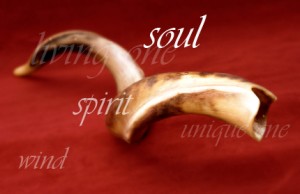
Yom Kippur is the holiest day in the Jewish religion, and one of the few days that all who follow this faith observe. Yom Kippur stands for “Day of Atonement,” and completes the Yamim Nora’im or the High Holy Days in Judaism. It is an observance about which any interfaith minister should learn.
The Hebrew calendar is based on 12 lunar months. Yom Kippur falls in the Hebrew month of Tishrei and is the last of the 10 Days of Repentance. This is the holiest of all Jewish holidays because it signifies the day an individual must seek forgiveness for the wrongs they have done against God and each other. The Bible refers to Yom Kippur as the Sabbath of all Sabbaths in Leviticus. For the Jewish people and some members of the Universal Life Church, it is a day of rest and fasting as they reflect on their sins and the need for forgiveness.
The number five plays a significant role in the customs for this day. In the scriptures regarding Yom Kippur, there are five different words used for the soul. There are also five acts that one should abstain from doing:
1. Eating or drinking
2. Bathing
3. Wearing of leather shoes
4. Perfumes or lotions
5. Sex
The purpose of abstaining from these aspects of life is to feel pain. By feeling pain, you can empathize with others in pain. The day purifies the soul through abstinence. The fasting begins 20 minutes before sundown and ends after nightfall the following day. In addition to abstaining, observers must apologize to God through prayer, repentance and humanitarian acts. To prepare for the fast, a feast is given the day prior to Yom Kippur after the afternoon prayer. Individuals seeking forgiveness against another person must ask for it from him or her prior to the holiday in preparation, as well.
Participants in Yom Kippur gather in the synagogue before nightfall. The men wear a traditional kittel, or white robe. The service consists of five distinctive prayers, unlike the traditional three prayer Jewish offering. In additional to prayers, one must take part in both private and public confessions, known as Vidui, meant to cleanse the soul of sin. At the end of Yom Kippur, observers hope to receive forgiveness from God. An interfaith minister seeking to be ordained should be familiar with all the unique prayers involved in Yom Kippur as they differ from more common synagogue services.
Since the Universal Life Church celebrates all faiths, what every person, whether wanting to be ordained or not, should know is Yom Kippur is a day of cleansing. You must seek repentance and forgiveness in order to cleanse the soul and seal your fate in the Book of Life for the coming year. Yom Kippur is a day of fasting, prayer and rest that all members of the faith celebrate. This holiday falls on the tenth day after the Jewish New Year known as Rosh Hashanah.

